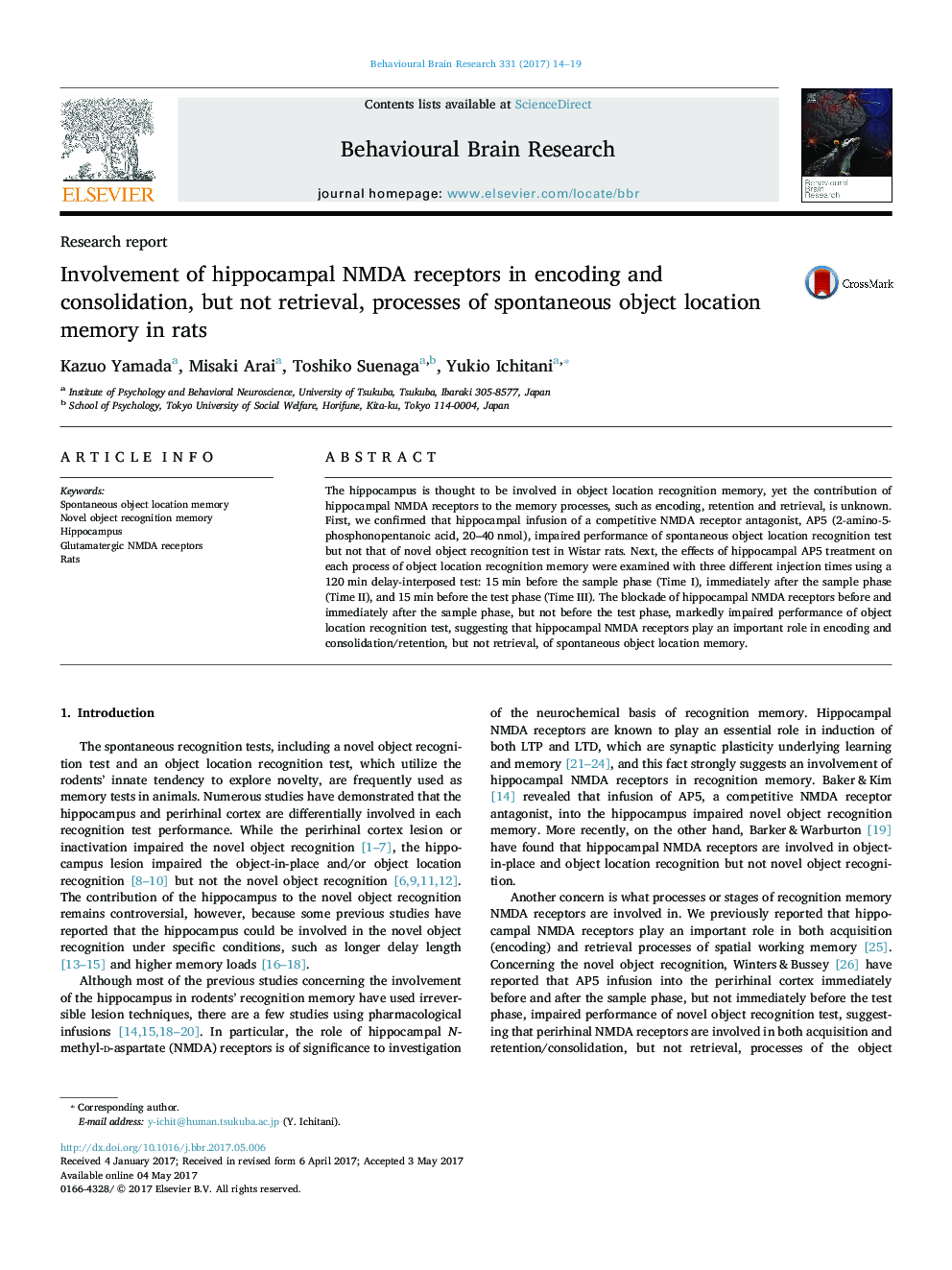| Article ID | Journal | Published Year | Pages | File Type |
|---|---|---|---|---|
| 5735317 | Behavioural Brain Research | 2017 | 6 Pages |
â¢Hippocampal NMDA receptors were blocked by AP5 at three different times in spontaneous object location recognition test in rats.â¢Blockade before and after the sample phase impaired performance.â¢Blockade before the test phase had no effects on performance.â¢Involvement of NMDA receptors in encoding and consolidation of object location memory was suggested.
The hippocampus is thought to be involved in object location recognition memory, yet the contribution of hippocampal NMDA receptors to the memory processes, such as encoding, retention and retrieval, is unknown. First, we confirmed that hippocampal infusion of a competitive NMDA receptor antagonist, AP5 (2-amino-5-phosphonopentanoic acid, 20-40Â nmol), impaired performance of spontaneous object location recognition test but not that of novel object recognition test in Wistar rats. Next, the effects of hippocampal AP5 treatment on each process of object location recognition memory were examined with three different injection times using a 120Â min delay-interposed test: 15Â min before the sample phase (Time I), immediately after the sample phase (Time II), and 15Â min before the test phase (Time III). The blockade of hippocampal NMDA receptors before and immediately after the sample phase, but not before the test phase, markedly impaired performance of object location recognition test, suggesting that hippocampal NMDA receptors play an important role in encoding and consolidation/retention, but not retrieval, of spontaneous object location memory.
